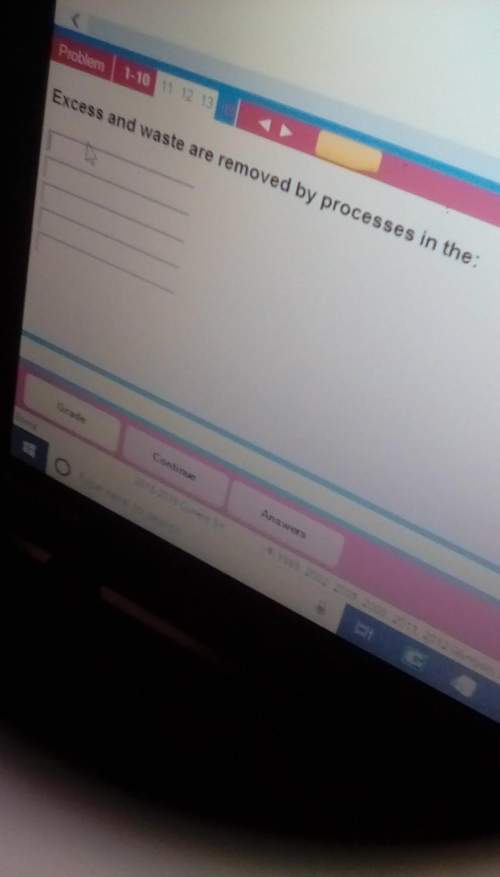
Biology, 25.01.2021 21:00, sarahmkey6
If your nose is completely clogged and you try to blow it out, you are generating pressure from your lungs. a. The smaller your nasal passage, the less force the pressure from your lungs will exert on the clog. b. The smaller your nasal passage the more force your pressure will exert on the clog. c. The size of the nasal passage does not affect the force your lungs exert on the clog.

Answers: 2
Other questions on the subject: Biology

Biology, 22.06.2019 06:50, naomi20044
What condition is kept close to its set point in osmoregulation? a. body temperature b. platelet count c. blood glucose level d. water balance
Answers: 1

Biology, 22.06.2019 10:30, lexiemornelas
During a fierce storm a large number of tall trees on an island are uprooted by the wind and die. most of the trees on the island are now short trees and produce seeds that grow into short trees. what concept is shown in this example? question 5 options: natural selection artificial selection genetic engineering gene splicing
Answers: 2

Biology, 22.06.2019 13:20, abolton04
Imagine a self-reactive t cell that has not undergone clonal deletion in the thymus (that is to say, it has escaped central tolerance). if it encounters self antigen in the absence of an infection or inflammation, what will happen to this self-reactive t cell? (select two answers) (a) the t cell undergoes clonal expansion. (b) the t cell gains effector functions. (c) the t cell undergoes apoptosis. (d) the t cell becomes activated. (e) the t cell becomes anergic.
Answers: 1
Do you know the correct answer?
If your nose is completely clogged and you try to blow it out, you are generating pressure from your...
Questions in other subjects:



Physics, 18.05.2021 16:20



Mathematics, 18.05.2021 16:20

Mathematics, 18.05.2021 16:20









